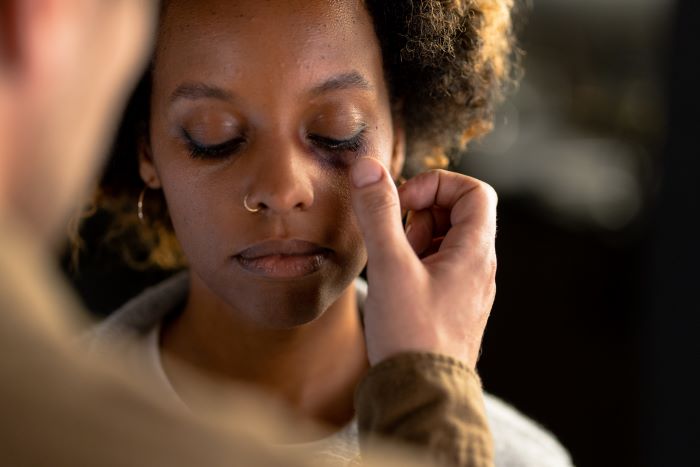
A key tool to help couples counseling work actually lies in how both a partner or spouse in a marriage or relationship tell the stories of who they are and what they’ve experienced in their lives. How do you understand what happens to you in your own life? Most likely, you tell stories to give meaning to the experiences that you have. When you’re sharing stories with your partner or spouse in your marriage or relationship, you can create a bond that both connects and builds a sense of belonging between the two of you. We don’t all tell stories in the same way, of course, and interestingly, how we tell our stories affects our ability to manage our emotions and to understand ourselves and our partner or spouse in our marriage or relationship.
To identify the differences in how you tell your story in your marriage or relationship, you may want to look back at the key people in your life that helped you create the script of how you tell your story about your past, and about your life now. For instance, what do you remember about your childhood experiences, whether positive or negative? How do you describe those experiences now? Who is the person in your life who influenced you most as a child, especially before the age of 10? That person, usually a mother or father, was your primary caregiver, and most likely helped to shape how you tell your story now: the story of your past, your present life, and the life you anticipate in the future. How you tell your story now defines how you see yourself, whether that is accurate or not.
What is that voice inside your head? One way to describe the voice is to call it your personal narrator, the voice that gives meaning to your experiences. When you use your personal narrator, you’re trying to make sense of your life, the experiences you have, related to how you define yourself, relationships, and the world. Your personal narrator does not always tell an accurate story of the events you’ve experienced: details may be foggy, and the meaning may be wrong. For instance, you may think that something was wrong with you because your mother was so busy focusing on her own career that she seldom spent time with you trying to understand you and to be there for you as an emotional support. An accurate narrator would be able to give meaning to the lack of caring and support by understanding the difficulties your mother had in your life, not because of you, but because of her own challenges. You deserved to have a caring and nurturing mother, and you deserve care and love in your life now. If you work to deepen and clarify how you understand yourself, the key people in your life, and significant experiences you’ve had, your personal stories can expand and become much more meaningful. Instead of dwelling on your past, you can actually free yourself from experiences that may often feel like they imprison you, even if they occurred 2 or 3 decades ago.
Exercise
Picture yourselfback in your childhood, before the age of 10, and think of an image when one of your key caregivers was telling you a story during and after a significant event. If the caregiver you are picturing had a secure connection to you, he or she helped you to connect both the details of the experience, the emotions you felt, and the meaning of the situation related to how you define yourself, relationships with others, and the world. The caregiver helps you develop meaning in your life. A key finding in research is that it is not what actually happened in your history that affects you nearly as much as how you give meaning to what happened in your life. Your narrator truly shapes how you see yourself, and how you relate to others in the world, including your partner or spouse in your marriage or relationship.
What are the best ways to make a marriage or relationship work?
In your early childhood, your brain is developing at its fastest pace, especially between 1 and 7 years of age, during puberty, and between 15 and 17 years of age. A foundation is laid by your caregivers to influence how you regulate your feelings and how you give meaning to your life. At the Loving at Your Best Plan, we refer to a healthy foundation from a caregiver as having three key actions, the 3-R’s: regulate, reflect, and respond. If you had a secure caregiver, he or she helped you to manage your emotional reactions by regulating yourself to calm and soothe yourself from the inside, and then helped you reflect on your experience to help you understand it. Reflecting is the term we use for “making sense” of the event or experience.
With a secure and healthy caregiver growing up as a child, you develop and grow until you’re eventually able to manage your own feelings and reflect on the events in your life through your own voice, without the assistance of your caregiver. The caregiver “models” healthy patterns of adaption and flexibility the become ingrained in you. Ideally, all of us would have grown up with a secure caregiver providing these key lessons and experiences to us.
However, if your caregiver didn’t help you manage your feelings, or help you reflect on events in your life in an accurate way, most likely you experienced what children in an insecure connection feel–shame about the experienceinstead of understanding the context and the meaning of the situation and the key characters in the story.
Usually, when a caregiver retells a story to a child, she or he helps the child understand the experiences and helps the child feel comforted through empathic responses. Telling a story involves the narration of a series of events and experiences of characters in those events, just like a narrator retells a story in a novel. The narrator helps the reader understand the events and the experiences of key characters.
As adults, we usually tell our story with words. As a child, if your caregivers helped you understand what was happening to you in upsetting situations accurately, you were most likely able to calm down relatively quickly. You’d understand what happened to you, and you’d more likely be able to predict what may happen to you in the future.
Perhaps you have experiences as a child that you couldn’t understand or give meaning to. Without a caregiver providing a healthy narrative voice, it’s unlikely you could manage what you were feeling, or accurately understand what you were going through. As a child develops, he or she forms the capacity to create a personal narrative based on the voice of the key caregivers in childhood. In the end, how you as a child told your story reflects how you came to understand your world, and how you learned to manage your feelings.
How to save a marriage or relationship, even if it is failing
The way you tell your life stories reveals the way you have come to understand the events of your life, in the past as well as the present. Even if you’re struggling with what you think is a failing marriage or relationship, if you focus on how you can make the failing marriage or relationship better instead of whether or not you should stay in the relationship, you’re much more likely to succeed in making improvements. How you tell the story of this process can have a significant impact.
As yourself the following questions about your current life, and see how your answers may influence how you see things in your marriage or relationship now:
· Do you describe your experiences from a distance, or do you emotionally relive your experiences as you retell your story?
· Do certain issues trigger intense feelings in you that stem from unresolved events or themes, even though they may have happened long ago?
· Do you remember many details about your early life?
· What feelings come up when you tell the story of your early experiences?
How would you answer the questions? How do you feel as you’re answering them? What do your answers mean to you?
Your life story can give you clues about how your present world is shaped by your past. How you tell your story and how you emphasize different aspects can reveal the way you have come to understand your world, meaning your self-esteem, relationships, and the world as a whole.
Read more in Daniel Siegel’sexcellent book, Parenting from the Inside Out. Need more help? Call or fill out our contact form, and we’ll help you get started today at the Loving at Your Best Plan. You may also visit our sister site for gay couples therapy. Share this page with a friend or family member by clicking the icons below. Let us know what you think as well by clicking the “comment” button. Read reviews of our therapists from unbiased, anonymous clients by clicking “Reviews.”
-
We’re listed in the Psychology Today Find a Therapist section
-
Recommended marriage counselors
Privacy Policy:We never share your information with third parties. You may easily unsubscribe at any time.
Author
-

Travis Atkinson, founder of Loving at Your Best Marriage and Couples Counseling, brings three decades of expertise to relationship healing. Mentored by pioneers in schema and emotionally focused therapies, he's revolutionized couples counseling with innovative approaches. Travis's multicultural background informs his unique view of each relationship as its own culture. He combines world-class expertise with genuine compassion to guide couples towards deeper connection.
View all posts
































































Thank you for your sharing. I am worried that I lack creative ideas. It is your article that makes me full of hope. Thank you. But, I have a question, can you help me?
Your article helped me a lot, is there any more related content? Thanks!
Your article helped me a lot, is there any more related content? Thanks!